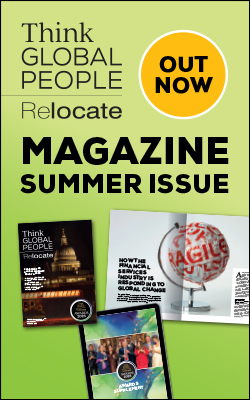Survey shows European business confidence growing at last
The future for European businesses is looking much brighter after a decade that has been one of the toughest in the post-war era for the European economy, according to a new report.

Continuing reluctance to invest
However, the survey also found a continuing reluctance among European firms to invest, with many hoarding cash. “Gross corporate savings rose to almost €2 trillion in 2015, and companies are divided between those saying they are saving to fund future investments (48 per cent) and those building reserves for future crises (47 per cent).“Yet most businesses believe they already invest at the right level and see sufficient opportunity to invest more; weak demand, lack of opportunities and access to finance no longer feature highly as barriers to investment.”Trying to explain this behaviour, the survey found that business leaders cited a range of risks and uncertainties, including concern about future crises, nervousness about rising populism and anti-globalisation sentiment, and lingering fears about the future shape and direction of the EU.Related news:
- CBI demands next government establish business Brexit task force
- UK inflation rise blamed on sterling's weakness
- UK house market stalls as London prices level off
Complicated times for the EU
“We delved more deeply into attitudes toward the EU, asking about the benefits companies had experienced in the past, as well as their hopes and expectations for Europe in the future,” said MGI. “These are complicated times for the European Union, which has had to contend with growing political and economic divergence, including the decision by the United Kingdom to withdraw from the EU altogether.“Overall, the response to our questions on the EU was positive. Just over half the companies surveyed think the EU has had a beneficial effect on their business, and the most successful companies are the most positive. Moreover, some 60 per cent of business respondents say they want ‘more Europe’ in the form of greater policy convergence and integration.“The answers nonetheless highlight a gap between the future EU that business wants and the scenarios it expects. Almost 85 per cent of surveyed companies say they think the EU will remain intact, and just under half anticipate that the status quo will prevail or that greater integration will take place. However, 51 per cent fear the eurozone will shrink or disband in the years ahead.”On the UK’s referendum decision to leave the EU, a third of executives feared a decision by any other countries to leave would be negative for their business.“Stronger productive investment will be critical to ensuring that Europe’s economic recovery remains on track,” added the report. “We have calculated that restoring investment to its level before the 2008 financial crisis could boost EU GDP by as much as €1 trillion.“Our survey suggests that, to achieve that potential, the EU will need to address lingering areas of fragility, including remaining financial risk, regulatory uncertainty, the direction of the eurozone and, where possible, geopolitical concerns such as migration and the integration of refugees, as well as populism. It could also help companies harness digitisation, enabling the EU to achieve more of its digital potential.“One way to bolster confidence would be to develop a new narrative about the European Union’s role and vision for the future that shows that the forces in favour of cooperation are stronger than those opposing it.”For related news and features, visit our Enterprise section.Access hundreds of global services and suppliers in our Online Directory Get access to our free Global Mobility Toolkit
Get access to our free Global Mobility Toolkit 
©2025 Re:locate magazine, published by Profile Locations, Spray Hill, Hastings Road, Lamberhurst, Kent TN3 8JB. All rights reserved. This publication (or any part thereof) may not be reproduced in any form without the prior written permission of Profile Locations. Profile Locations accepts no liability for the accuracy of the contents or any opinions expressed herein.


































